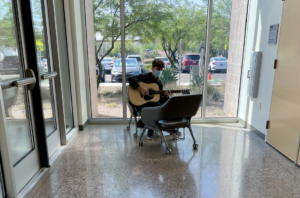XPRIZE Launches $15 million Prize to Power Personal Learning

A new consumer product comes out every week but learning platforms have been slow to develop. It’s still harder than it should be to create an effective sequence of learning experiences in elementary and secondary education. As noted last year, underinvestment and weak demand articulation have caused learning platforms to lag five years behind growing interest in engaging, student-centered learning.
A Santa Monica nonprofit plans to solve that problem with a $15 Million prize for a platform that empowers young people to take control of their own learning. The Global Learning XPRIZE challenge invites teams from around the world to develop open source and scalable software that enables young people to teach themselves basic reading, writing and arithmetic.
Announced by Peter Diamandis, XPRIZE Chairman and Chief Executive at the Social Good Summit in NYC, the competition is the most recent large scale effort to apply technology-based solutions to closing the learning gap in the developing world. Watch this XPRIZE video that explains the competition:
[youtube http://youtu.be/3Dnn7NFQPbQ]
With 60 million young people without access to education and 100 million lacking basic reading and math skills, the Global Learning XPRIZE is an effort to reduce education inequality through tablet based personalized learning software.
Registered teams have 18 months to develop and submit software. Five teams will be selected and awarded $1 million to apply their solutions for 18 months to over 100 villages in developing countries, reaching an anticipated 4,000 students. The grand prize of $10 million will be awarded to the team whose solution produces the greatest tracked gains among students in reading, writing and math.
“We’re hoping to see something like [artificial intelligence] that can perhaps anticipate a child’s learning trajectory, where a child can teach to it, that encourages peer-to-peer learning and self-learning, said XPRIZE’s Matt Keller. “Maybe there will be some dynamic games where kids are learning but they’re not even aware that they’re learning because it’s just fun.”
Keller added, “The Global Learning XPRIZE is the first effort of its kind and scale where the public is asked to develop original content and applications for tables that will be put directly into the hands of children, empowering them [to] teach themselves and each other.”
Why prizes? We are only just beginning to realize the potential for prizes to mobilize global expertise and accelerate innovation in education, according to the co-authors of a newly released paper. “Using Prizes & Pull Mechanisms to Boost Learning” released from Digital Learning Now (DLN), a national initiative of the Foundation for Excellence in Education (@ExcelinEd), and Getting Smart, highlights the potential of boosting learning through incentives such as prizes. The paper explains why prizes and other “pull mechanism” are useful where there is market failure:
In healthy markets, participants respond to incentives, invest in research and development (R&D) and produce new innovations. Capital investments bring productivity to scale. In underdeveloped or inefficient markets, customers have few choices, often controlled by bureaucratic mechanisms rather than market mechanisms, and there is little investment in R&D. Underdeveloped markets suffering from a lack of investment and innovation can be addressed through direct investment (return-seeking or philanthropic) by advocating for better policies, or through pull mechanisms.
The paper notes that well constructed prizes mobilize global talent and resources and yield creative solutions not likely to arise from a traditional contracting approach. As the authors discussed, there are no “silver bullets” in education, but targeted incentives for innovation, like Hewlett-sponsored essay scoring competitions can mobilize talent and resources to improve access and quality.
To register your team and to learn more about the competition visit learning.xprize.com.
For more on innovations in learning platforms, see:
Digital Learning Now is a Getting Smart Advocacy Partner.







0 Comments
Leave a Comment
Your email address will not be published. All fields are required.